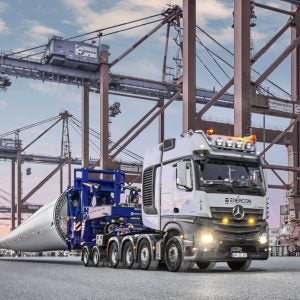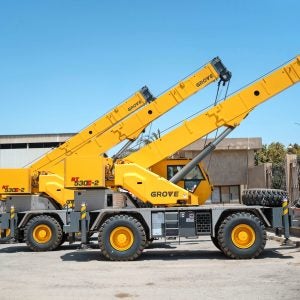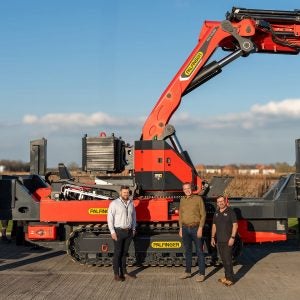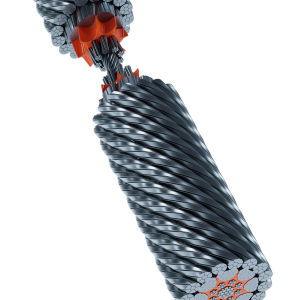Terex has won a court ruling that Liebherr-Werk Ehingen´s Y-guy lateral support system for its LTM 1500 infringes Terex-Demag patents for its Sideways Superlift technology.
According to Terex, the 2 April court ruling means that Liebherr must stop producing its Y-guy system. Terex Cranes president Steve Filipov said that he would negotiate with Liebherr to reach a solution that would cause no damage to the interests of their mutual customer base. This means that Terex will not seek to make Liebherr call in all cranes with the Y-guy system. It could even possibly negotiate a settlement that sees Liebherr paying a royalty fee to Terex.
If Liebherr breaches the court ruling it faces a fine of E250,000 or even imprisonment for directors.
The victory could be interpreted as revenge for Liebherr’s action against Demag four years ago to protect its Telematik boom pinning system patents.
Liebherr Werk Ehingen managing director Hans-Georg Frey said that he could make no comment until he had read the full judgement. But Liebherr is expected to lodge an appeal and continue the battle.
Liebherr has always maintained that its lateral boom support solution is significantly different from Terex-Demag’s. Terex, however, believes that its SSL patents are worded sufficiently carefully that the entire concept of suspended lateral supports are protected. It also says that the 2 April judgement confirms that view.
The suit lodged by Terex with the Mannheim patent court in August 2003 was specifically concerned with the LTM 1500 model. According to Terex, however, the court ruling also in practice will cover the LTM 1400. Liebherr argues that the design of the Y-guy system on the LTM 1400 is different from that of the 1500. The dispute has always centred on the scope of Terex-Demag´s patent.
The court ruling was revealed to industry journalists by Steve Filipov during the Bauma Fair in Munich. He said that he would send Grove a copy of the judgement. Terex believes that Grove’s Mega Wing Lift system, developed last year, also infringes its patents. Whether legal action is now started against Grove depends on how Grove reacts, said Terex-Demag president Alex Knecht.
The whole dispute is reminiscent of Demag’s failed attempts in the 1970s and 1980s to protect its original Superlift patents for supended support systems behind the boom. Other manufacturers imitated the system and Demag was unable to protect its technological advantage. The SSL patents, Knecht said, have been more thoroughly prepared.
Dr Frank-Erich Hufnagal, Terex-Demag’s lawyer from Freshfields Bruckhaus Deringer, explained a further significant implication of the judgement: ‘The judgement does not give Demag any entitlement to demand technical documentation but they [Liebherr] have to surrender commercial information on all cranes sold, including cost structure and profit.’






